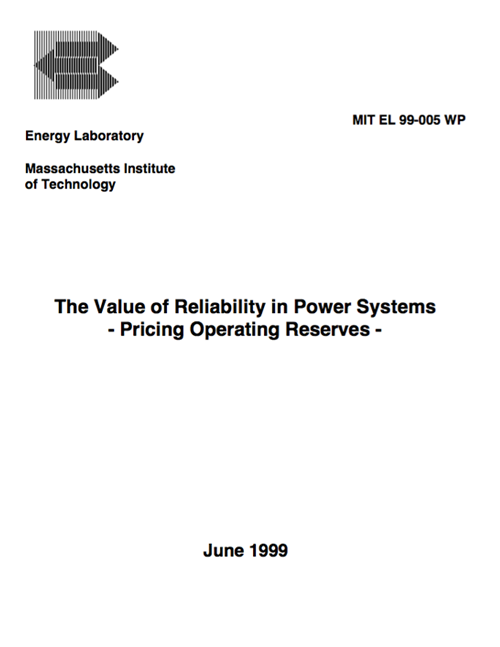
Abstract
The provision of operating reserve in power systems is revisited in the context of the deregulated power industry and of competitive power markets. The operating reserve is stand-by capacity that must be kept ready to generate energy to provide for un-planned outages of generating units. The former problem of establishing reserve requirements in the regulated industry has turned into the question of what kind of mechanisms should be devised to allocate and price this service in competitive power markets.
This report analyzes the allocation of operating reserves at the system operator level. In the past, reserve requirements have been defined using deterministic criteria such as “peak load percentage” or “loss of largest unit”, which fail to consistently define the risk of supply shortages in the system. Furthermore, these quantity-constrained methods do not explicitly address economic criteria and, when employed in competitive markets, they do not capture the worth of added reliability provided by capacity reserves.
This work proposes the allocation of operating reserves through capacity markets using a stochastic demand model. The insurance-like characteristics of the operating reserve are used to derive a valuation model which is analytically consistent and reflects the economic value to customers of added reliability. The model can be expressed in the form of a demand curve for operating reserve. This curve can be used in auction-type capacity markets to determine the amount of reserve to be provided and its trading price.